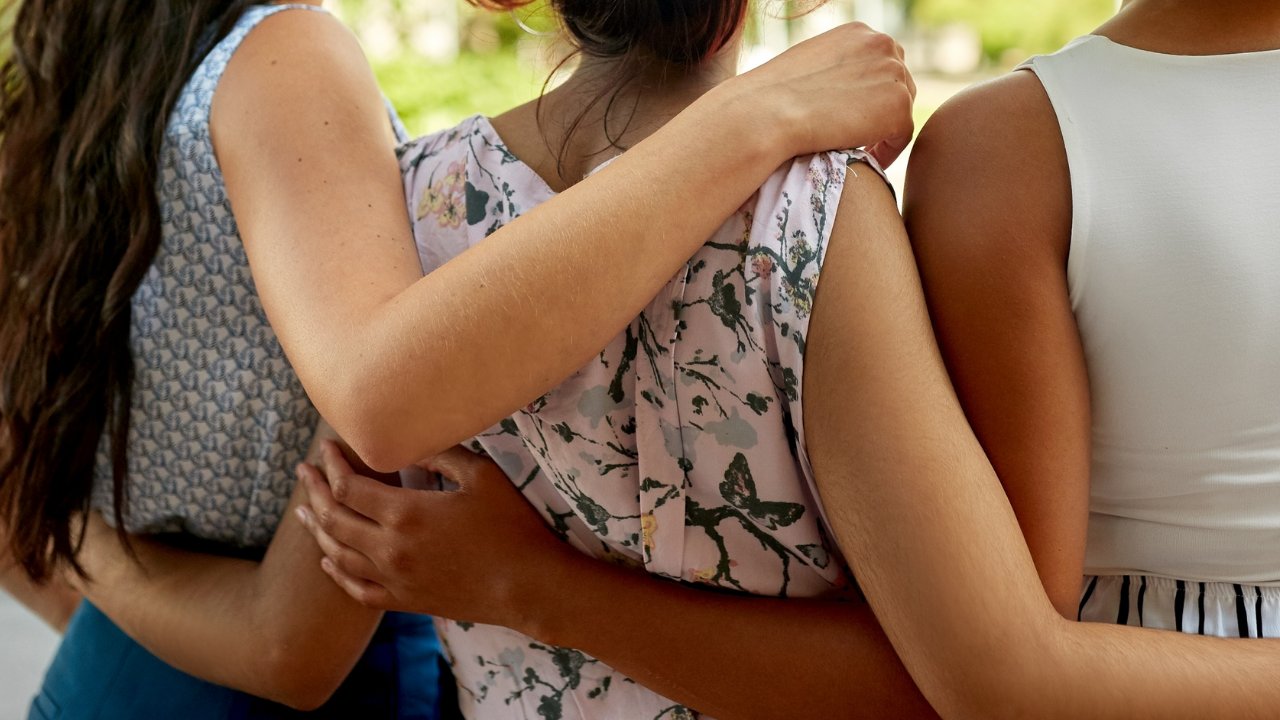
Adoptee-Centered Healing: Why Representation Matters in Mental Health
Sep 18, 2025First of all a shout-out to Adoption Mosaic, a groundbreaking organization led by Astrid Castro, who describes her beginnings as having been sold on the black market with her sister. Through her leadership, Adoption Mosaic has become a sacred space where adoptees can gather, share their truths, and lead the narrative of adoption in their own voices.
Each month, I attend We the Experts series, panel discussions where adoptees take center stage. Adoptive parents like me are welcome to listen—but we are not allowed to ask questions or even comment in the chat. At first, I struggled with that boundary, but it quickly became clear why it’s so important. This structure protects the space as truly adoptee-centered. The result is raw honesty, deep vulnerability, and healing conversations—especially for adoptees, who for too long have had to hear their lives told by others. For me, it is a privilege to be a humbling fly on the wall.
This points to a larger truth: adoptees need healing spaces led by adoptees. For generations, the adoption story has been framed by adoptive parents, agencies, and institutions, often with little room for adoptees or birth families to define their own experiences. That imbalance has caused real harm. The good news is, a shift is underway.
Adoptee Voices and Leadership
One of the most important shifts is the rise of adoptee-led voices. Angela Tucker, an adoptee of color raised in a white family, has been a pioneer in telling her story and helping others navigate adoption’s complexities. She made the powerful documentary Closure, chronicling her reunification with her birth mother, and has authored the book "You Should Be Grateful" exploring her experiences. Angela now also works as a counselor, using her lived experience to guide others. Her work demonstrates how adoptees can lead conversations, create healing, and educate the broader adoption community.
Other notable adoptee voices include Nicole Chung (All You Can Ever Know) and Sarah Easterly (Adoption Unfiltered), whose books, podcasts and advocacy work have amplified adoptee perspectives and challenged long-standing adoption narratives. Documentaries like Somewhere Between and Found similarly center adoptees’ experiences, offering powerful insights into identity, grief, and belonging. IN 2018 the documentary "Three Identical Strangers" follows the true story of 3 brothers (triplets) discovering each other by chance in 1980, and coming to the shocking realization that they were part of an unethical undisclosed scientific study on the nature vs nurture debate.
Another transformative organization is PACT (Parents of African and African-American Children Together), now led by Susan Dusza Guerra Leksander, LMFT, first mother and adoptee. PACT provides adoption counseling, support, and training for adoptees of color and their families. I attended their camp in 2019 in Georgia and had a profoundly moving experience. Walking into the dining hall, I was suddenly surrounded by 80 families that looked like mine—I cried. I had come home. It was an unforgettable feeling of connection, belonging, and learning. Programs like this demonstrate the power of adoptee-centered spaces to foster healing and community.
Adoptee Therapists: Healing from the Inside
Mental health support from adoptee therapists is another transformative trend. Many adoptees encounter counselors who, while well-meaning, lack lived experience of adoption’s layers of loss, identity challenges, and cultural displacement. Working with an adoptee therapist allows adoptees to be seen and understood in ways that others simply cannot replicate. My daughter’s healing journey was profoundly enhanced when she began therapy with someone who truly “got it” without explanation.
Resources for adoptee-centered therapy include the National Directory of Adoptee Therapists at Adoptee Voices. Additionally, leaders like Sandy White Hawk, a Sicangu Lakota adoptee, guide work in culturally informed healing through First Nations Repatriation Institute, focusing on reconnecting Native adoptees to their heritage and advocating for systemic change.
BIPOC Adoptee Spaces
BIPOC Adoptees is another vital space where adoptees of color can connect, share, and heal in community, free from the white gaze. I heard this summer's annual conference was sold out! These gatherings, alongside Adoption Mosaic and adoptee-led mental health initiatives, underscore the importance of placing adoptee voices and experiences at the center of adoption dialogue.
The truth is, adoption narratives are only now shifting toward those most impacted: adoptees and birth families. Their stories, leadership, and healing work are not optional—they are essential. When adoptees are centered in therapy, advocacy, and storytelling, we all benefit from a more honest, compassionate, and just adoption ecosystem.
Join the movement to center adoptee voices! Listen, learn, and share this post with parents, mental health professionals, and friends. Support adoptee-led spaces and advocacy to help foster healing, understanding, and a stronger future for all children in adoption.
In solidarity,
Marion Van Namen
Founder - Wild Awake Life Coaching
Don't miss a beat!
New moves, motivation, and classes delivered to your inbox.
We hate SPAM. We will never sell your information, for any reason.
